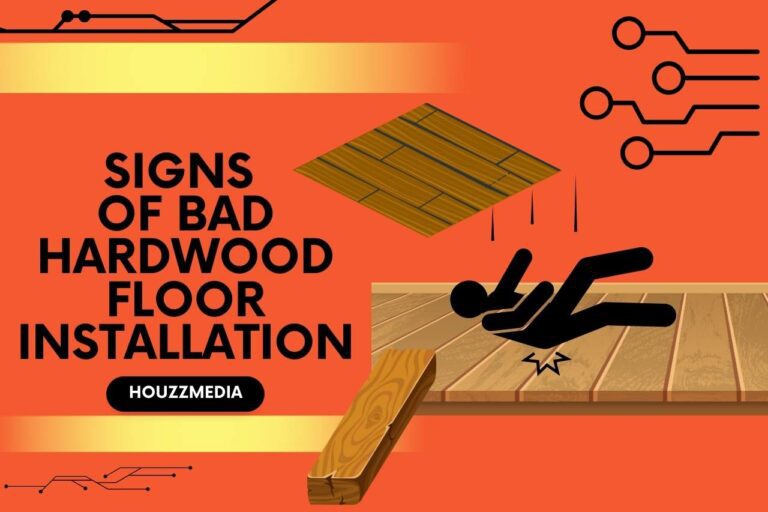Do Termites Have a Distinct Smell? The Truth Revealed
Early detection of termite infestations is essential to reducing the harm they may do. Termite infestations, if untreated, can go unnoticed for years, resulting in substantial damage that may be challenging and expensive to cure. Do termites have a smell? Let’s find out!
Termites do emit a distinct odour, which can be described as a musty or mouldy smell. Wooden buildings are frequently severely damaged by termites. These pests pose a significant risk to the structural stability of buildings because they feed on timber and other cellulose materials like books, paper, and insulation. Termites can seriously harm the building’s structure and jeopardize its security.
What Do Termites Smell Like?
In fact, termites emit a smell. They converse with one another by means of pheromones. Termites come in several varieties, and each variety has a distinctive odour. Isopentyl acetate is a pheromone that termites release that they utilize to communicate with each other in their colony.
Example: The winged reproductive termite has a musty odour.
More of this odour is released when they perceive danger, alerting the other birds in the nest and also when trying to find a mate.
A termite infestation may smell like dampness, mould, mildew, or moist vegetation. They often smell like their surroundings/environment.
Mould or mildew: These pests commonly release a musty odour that is comparable to mould or mildew. If there are no visible indications of mildew or mould in your house or building, make a note of it. That can be a sign that there are termites in your home.
Decayed wood: The Scent of rotting wood is another indication of termites. Wood is a favourite food of these insects.
Rotten leaves: Termites are likely to blame if you smell rotten leaves. Because they consume leaves often, termites have a musty scent.
Sweet Scent: Termites also create a pleasant odour that is sometimes compared to syrup or honey. The queen termite releases this delicious odour to entice mates.
Can Humans Smell Termites?
Yes. Termites are known to produce a variety of chemical compounds that can be detected by some humans. Many chemical substances that some people may identify can be produced by termites. The ability to smell termites depends on a variety of variables, including the person’s sensitivity to certain compounds and the amount of those chemicals present in the environment.
Pheromones, defense chemicals, and compounds created during digestion are just a few of the volatile substances generated by termites. Since they are more reactive than others, they can be discovered by people.
Yet, depending on their unique nasal sensitivity, individuals’ capacity to notice the smell of termites differs greatly. Some individuals may be particularly sensitive to specific termite compounds and be able to detect them at extremely low quantities, while others may not.

How Do You Detect Termite Infestations?
It might not be as clear as one might imagine that termites are there. In fact, you may not even be aware that termites are destroying your home’s structure for a while until more glaring symptoms start to surface.
In order to identify the source of any strange smells, thoroughly investigate your surroundings if you notice them. It’s possible that termite infestation is the cause.
Termite infestation damage is known to give off a musty or fungal smell comparable to mould or mildew.
This scent is typically linked with wet or moist areas because there is rotting wood or other decomposing woody components in these areas, which these bugs target.
This may lead you to believe that termite harm to the intended food source is the cause of the odor coming from the region. Nevertheless, the termite itself or any odour-filled materials it carried along or left behind may be the source of the stink.
VIDEO CREDITS: RovePestControl YouTube Channel
What is the Smell of Wood Termites?
They smell like decayed or rotten wood. The things that wood termites eat and the habitat in which they live may both affect how they smell. An infestation of termites may smell more musty or moldy in a wet, gloomy environment than in a dry one, which might smell more subtle or earthy.
Do Termite Colonies Emit a Smell?
Yes. The creation of several chemical compounds by termite colonies does indeed cause them to smell. Pheromones are one type of chemical that termites employ for communication throughout their colony. Termites may use these chemical signals to find food sources, recognize nestmates, and plan activities like feeding, construction, and reproduction.
Moreover, when disturbed or threatened, termite colonies may release an odor. For instance, termites may produce an alarm pheromone to warn other termite colony members of danger when a pest or predator management expert disrupts the colony. Also, the surroundings they live in can affect the smell.
Do Termites Smell when Squished?
Yeah, when these insects are squished, they can emit a unique smell. Termites may release compounds that can emit a pungent, musty stench when they are disturbed or crushed. This smell can serve to mobilize the colony’s defensive reaction and is intended to warn fellow termites in the colony of danger.
Depending on the kind of termite and the particular compounds emitted, the precise smell given off by crushed termites can change. However, the smell is frequently characterized as mouldy, musty, or earthy, and it could resemble the smell of decaying wood.
How do you Get Rid of Termites’ Smell?
Essential oils like tea tree oil, camper oil, and other oils are useful for short-term outcomes. Spray a solution containing 5 to 10 drops per litre of water directly over the termite colony’s home with a smaller infestation.
But, even if it merely entails eliminating the risk of a termite infestation, you would definitely need to have the location assessed by a pest control specialist. It is advised to call an expert and get this area evaluated if you do think you have a severe infestation because doing so might help you avoid spending hundreds of dollars on repairs.
Finally, don’t ignore the signs coming from these tiny insects, if do you’ll end up with damaged wooden materials.
More Like This: Check Out These Related Articles






